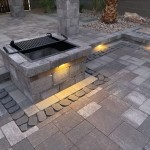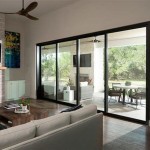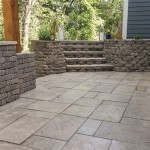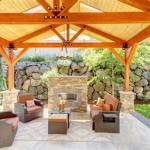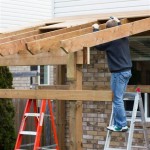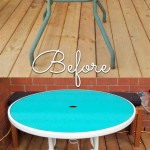Sun Shade Screens for Patios: Enhancing Outdoor Living Spaces
Patios serve as extensions of the indoor living space, providing areas for relaxation, dining, and entertainment. However, exposure to intense sunlight, heat, and insects can significantly diminish the enjoyment of these outdoor areas. Sun shade screens offer a practical and versatile solution to mitigate these issues, creating more comfortable and usable patio spaces. These screens are designed to block harmful UV rays, reduce glare, and provide shade, allowing individuals to utilize their patios throughout the day, even during the hottest months.
The market for sun shade screens has expanded substantially in recent years, with a wide variety of styles, materials, and functionalities available to suit diverse needs and preferences. Homeowners can select from manually operated or motorized systems, a range of fabric densities and colors, and even options that integrate seamlessly with smart home technology. The choice of sun shade screen depends on several factors, including the size and orientation of the patio, the desired level of sun protection, aesthetic considerations, and budget constraints.
This article will delve into the various aspects of sun shade screens for patios, examining their benefits, types, materials, installation considerations, and maintenance requirements. The intent is to provide a comprehensive overview to assist readers in making informed decisions when selecting and implementing sun shade solutions for their outdoor spaces.
Understanding the Benefits of Sun Shade Screens
The primary benefit of sun shade screens is their ability to regulate the amount of sunlight and heat that permeates the patio area. By blocking a significant portion of the sun's rays, these screens can dramatically reduce the temperature, creating a more comfortable environment for outdoor activities. This is particularly beneficial in regions with hot climates, where excessive heat can make patios unusable during much of the day.
Beyond temperature regulation, sun shade screens offer protection from harmful ultraviolet (UV) radiation. Prolonged exposure to UV rays can lead to sunburn, premature aging of the skin, and an increased risk of skin cancer. By filtering out a substantial portion of these rays, sun shade screens help to safeguard the health of individuals spending time on the patio. The level of UV protection offered varies depending on the material and weave density of the screen. Selecting a screen with a high UV protection factor (UPF) is crucial for maximizing this benefit.
Another significant advantage of sun shade screens is their ability to reduce glare. Excessive glare can strain the eyes and make it difficult to perform tasks such as reading or using electronic devices. By diffusing sunlight, these screens create a softer, more even light that minimizes glare and enhances visual comfort. This is particularly important for patios that are situated in areas with reflective surfaces, such as swimming pools or light-colored paving.
Furthermore, many sun shade screens offer a degree of privacy, shielding the patio from the view of neighbors or passersby. The level of privacy provided depends on the density of the screen material. Denser screens offer greater privacy but may also reduce airflow and natural light. Selecting a screen with an appropriate balance of privacy and ventilation is essential for achieving the desired level of comfort and seclusion.
Finally, sun shade screens can also serve as a barrier against insects, such as mosquitoes and flies. By creating a physical barrier, these screens help to keep pests away from the patio, allowing individuals to enjoy their outdoor space without being bothered by insects. Some screens are specifically designed with fine mesh to provide maximum insect protection while still allowing for adequate airflow.
Exploring Different Types of Sun Shade Screens
The market offers a diverse range of sun shade screens, each with its own distinct features and functionalities. These screens can be broadly categorized based on their operating mechanism, design, and mounting style. Understanding the different types of screens available is essential for selecting the most appropriate option for a specific patio and lifestyle.
Retractable sun shade screens are among the most popular options, offering flexibility and convenience. These screens can be easily extended or retracted depending on the weather conditions and the desired level of sun protection. Retractable screens are typically operated manually using a crank or cord, or they can be motorized for effortless operation. Motorized screens can also be integrated with smart home systems, allowing them to be controlled remotely via a mobile app or voice command.
Fixed sun shade screens, as the name suggests, are permanently installed and cannot be retracted. These screens offer a more permanent solution for sun protection and can be particularly suitable for patios that require consistent shade. Fixed screens are often constructed from durable materials such as aluminum or steel and can be designed to complement the architectural style of the home.
Roller shades are another common type of sun shade screen, consisting of a fabric panel that is rolled up or down using a cord or chain mechanism. Roller shades are available in a wide range of fabrics and colors, allowing homeowners to customize the look of their patio. These shades can be easily installed on existing patio structures, such as pergolas or gazebos.
Solar shades are specifically designed to block a significant portion of the sun's heat and glare while still allowing natural light to filter through. These shades are typically made from a tightly woven fabric that reflects solar radiation. Solar shades are an excellent option for patios that require maximum heat reduction without sacrificing natural light.
Finally, zippered screens provide complete enclosure of the patio, offering protection from sun, insects, and wind. These screens are typically used in conjunction with a retractable frame system and feature a zipper closure that creates a tight seal. Zippered screens are an ideal solution for creating a screened-in porch or outdoor living space.
Materials and Installation Considerations
The materials used in the construction of sun shade screens play a significant role in their durability, performance, and aesthetic appeal. Common materials include various types of fabrics, aluminum, steel, and wood. The choice of material depends on factors such as the desired level of sun protection, weather resistance, maintenance requirements, and budget.
Fabrics used in sun shade screens are typically made from synthetic materials such as polyester, acrylic, or vinyl-coated polyester. These materials are chosen for their resistance to fading, mildew, and tearing. The density and weave of the fabric determine the amount of sun and heat that is blocked. Darker fabrics tend to absorb more heat, while lighter fabrics reflect more sunlight. The selection of fabric color and texture should complement the overall design of the patio and the surrounding landscape.
Aluminum and steel are commonly used for the frames and hardware of sun shade screens. These materials are strong, durable, and resistant to corrosion. Aluminum is lightweight and easy to work with, while steel offers greater strength and stability. Powder coating is often applied to aluminum and steel frames to provide additional protection against the elements and to enhance their aesthetic appearance.
Wood can be used for decorative elements or for the entire frame of sun shade screens. Wood offers a natural, warm aesthetic that can complement traditional or rustic patio designs. However, wood requires regular maintenance, such as staining or painting, to protect it from the elements and prevent rot or decay.
Installation of sun shade screens can be a straightforward process for experienced DIYers, but professional installation is often recommended, especially for retractable or motorized systems. Proper installation is crucial for ensuring the screen's functionality, stability, and longevity. The installation process typically involves attaching the screen to existing patio structures, such as walls, posts, or beams. Careful attention must be paid to ensuring that the screen is securely mounted and properly aligned.
When planning the installation, it's important to consider the orientation of the patio and the direction of the sun's rays. Placing the screen strategically can maximize its effectiveness in blocking sunlight and heat. It's also essential to consider the prevailing wind conditions and to select a screen that is designed to withstand the wind load. Overly exposed patios may require heavier duty screens and more robust mounting hardware.
Local building codes and regulations may apply to the installation of sun shade screens. It's important to check with the local authorities to ensure that the installation complies with all applicable requirements. Permits may be required for certain types of screens or installations.
Once the sun shade screen is installed, regular maintenance is essential for keeping it in good condition and prolonging its lifespan. This typically involves cleaning the screen regularly with mild soap and water to remove dirt and debris. Retractable screens should be inspected periodically for any signs of wear or damage. Motorized systems should be serviced annually to ensure proper operation. Following the manufacturer's recommendations for maintenance will help to keep the sun shade screen functioning optimally for years to come.

Retractable Exterior Solar Screen Nationwide Sunair Awnings

Retractable Exterior Solar Screen Nationwide Sunair Awnings

Retractable Exterior Solar Screen Nationwide Sunair Awnings

Electric Retractable Solar Screens Houston Signature Shutters

Large Heavy Duty Outdoor Solar Shades North Screen

Retractable Exterior Solar Screen Nationwide Sunair Awnings

Exterior Solar Screen Shades Window Works

Outdoor Solar Screens Window Sun Shades More Phifer

Suntex Retractable Porch Shade Screen

Exterior Shades Outdoor Screen Patio In Kansas City

